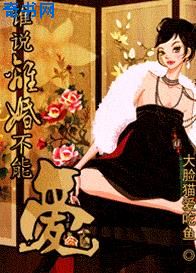生命不能承受之轻-第41部分
按键盘上方向键 ← 或 → 可快速上下翻页,按键盘上的 Enter 键可回到本书目录页,按键盘上方向键 ↑ 可回到本页顶部!
————未阅读完?加入书签已便下次继续阅读!
fect judo flip。
Now he was satisfied with himself。 Sabina's eyes were still on him。 She would never see him humiliate himself again! She would never see him retreat! Franz was through with being soft and sentimental!
He felt what was almost a cheerful hatred for these men。 They had thought to have a good laugh at him and his naivete! He stood there with his shoulders slightly hunched and his eyes darting back and forth between the two remaining men。 Suddenly; he felt a heavy blow on his head; and he crumpled immediately。 He vaguely sensed being carried somewhere。 Then he was thrown into emptiness and felt himself falling。 A violent crack; and he lost consciousness。
He woke up in a hospital in Geneva。 Marie…Claude was leaning over his bed。 He wanted to tell her she had no right to be there。 He wanted them to send immediately for the girl with the glasses。 All his thoughts were with her。 He wanted to shout that he couldn't stand having anyone but her at his side。 But he realized with horror that he could not speak。 He looked up at Marie…Claude with infinite hatred and tried to turn away from her。 But he could not move his body。 His head; perhaps? No; he could not even move his head。 He closed his eyes so as not to see her。
27
In death; Franz at last belonged to his wife。 He belonged to her as he had never belonged to her before。 Marie…Claude took care of everything: she saw to the funeral; sent out the announcements; bought the wreaths; and had a black dress made—a wedding dress; in reality。 Yes; a husband's funeral is a wife's true wedding! The climax of her life's work! The reward for her sufferings!
The pastor understood this very well。 His funeral oration was about a true conjugal love that had withstood many tests to remain a haven of peace for the deceased; a haven to which he had returned at the end of his days。 The colleague of Franz's whom Marie…Claude asked to speak at the graveside services also paid homage primarily to the deceased's brave wife。
Somewhere in the back; supported by a friend; stood the girl with the big glasses。 The combination of many pills and suppressed sobs gave her an attack of cramps before the ceremony came to an end。 She lurched forward; clutching her stomach; and her friend had to take her away from the cemetery。
28
The moment he received the telegram from the chairman of the collective farm; he jumped on his motorcycle。 He arrived in time to arrange for the funeral。 The inscription he chose to go under his father's name on the gravestone read:
HE WANTED THE KINGDOM OF GOD ON EARTH。
He was well aware that his father would not have said it in those words; but he was certain they expressed what his father actually thought。 The kingdom of God means justice。 Tomas had longed for a world in which justice would reign。 Hadn't Simon the right to express his father's life in his own vocabulary? Of course he had: haven't all heirs had that right from time immemorial?
A RETURN AFTER LONG WANDERINGS was the inscription adorning the stone above Franz's grave。 It can be interpreted in religious terms: the wanderings being our earthly existence; the return our return to God's embrace。 But the insiders knew that it had a perfectly secular meaning as well。 Indeed; Marie…Claude talked about it every day:
Franz; dear; sweet Franz! The mid…life crisis was just too much for him。 And that pitiful little girl who caught him in her net! Why; she wasn't even pretty! (Did you see those enormous glasses she tried to hide behind?) But when they start pushing fifty (don't we know it!); they'll sell their souls for a fresh piece of flesh。 Only his wife knows how it made him suffer! It was pure moral torture! Because; deep down; Franz was a kind and decent man。 How else can you explain that crazy; desperate trip to wherever it was in Asia? He went there to find death。 Yes; Marie…Claude knew it for an absolute fact:
Franz had consciously sought out death。 In his last days; when he was dying and had no need to lie; she was the only person he asked for。 He couldn't talk; but how he'd thanked her with his eyes! He'd fixed his eyes on her and begged to be forgiven。 And she forgave him。
29
What remains of the dying population of Cambodia?
One large photograph of an American actress holding an Asian child in her arms。
What remains of Tomas?
An inscription reading HE WANTED THE KINGDOM OF GOD ON EARTH。
What remains of Beethoven?
A frown; an improbable mane; and a somber voice intoning Es muss sein!
What remains of Franz?
An inscription reading A RETURN AFTER LONG WANDERINGS。
And so on and so forth。 Before we are forgotten; we will be turned into kitsch。 Kitsch is the stopover between being and oblivion。
PART SEVEN
Karenin's Smile
1
The window looked out on a slope overgrown with the crooked bodies of apple trees。 The woods cut off the view above the slope; and a crooked line of hills stretched into the distance。 When; towards evening; a white moon made its way into the pale sky; Tereza would go and stand on the threshold。 The sphere hanging in the not yet darkened sky seemed like a lamp they had forgotten to turn off in the morning; a lamp that had burned all day in the room of the dead。
None of the crooked apple trees growing along the slope could ever leave the spot where it had put down its roots; just as neither Tereza nor Tomas could ever leave their village。 They had sold their car; their television set; and their radio to buy a tiny cottage and garden from a farmer who was moving to town。
Life in the country was the only escape open to them; because only in the country was there a constant deficit of people and a surplus of living accommodations。 No one bothered to look into the political past of people willing to go off and work in the fields or woods; no one envied them。
Tereza was happy to abandon the city; the drunken barflies molesting her; and the anonymous women leaving the smell of their groins in Tomas's hair。 The police stopped pestering them; and the incident with the engineer so merged with the scene on Petrin Hill that she was hard put to tell which was a dream and which the truth。 (Was the engineer in fact employed by the secret police? Perhaps he was; perhaps not。 Men who use borrowed flats for rendezvous and never make love to the same woman twice are not so rare。)
In any case; Tereza was happy and felt that she had at last reached her goal: she and Tomas were together and alone。 Alone? Let me be more precise: living alone meant breaking with all their former friends and acquaintances; cutting their life in two like a ribbon; however; they felt perfectly at home in the company of the country people they worked with; and they sometimes exchanged visits with them。
The day they met the chairman of the local collective farm at the spa that had Russian street names; Tereza discovered in herself a picture of country life originating in memories of books she had read or in her ancestors。 It was a harmonious world; everyone came together in one big happy family with common interests and routines: church services on Sundays; a tavern where the men could get away from their womenfolk; and a hall in the tavern where a band played on Saturdays and the villagers danced。
Under Communism; however; village life no longer fit the age…old pattern。 The church was in the neighboring village; and no one went there; the tavern had been turned into offices; so the men had nowhere to meet and drink beer; the young people nowhere to dance。 Celebrating church holidays was forbidden; and no one cared about their secular replacements。 The nearest cinema was in a town fifteen miles away。 So; at the end of a day's work filled with boisterous shouting and relaxed chatter; they would all shut themselves up within their four walls and; surrounded by contemporary furniture emanating bad taste like a cold draft; stare at the refulgent television screen。 They never paid one another visits besides dropping in on a neighbor for a word or two before supper。 They all dreamed of moving into town。 The country offered them nothing in the way of even a minimally interesting life。
Perhaps it was the fact that no one wished to settle there that caused the state to lose its power over the countryside。 A farmer who no longer owns his own land and is merely a laborer tilling the soil forms no allegiance to either region or work; he has nothing to lose; nothing to fear for。 As a result of such apathy; the countryside had maintained more than a modicum of autonomy and freedom。 The chairman of the collective farm was not brought in from outside (as were all high…level managers in the city); he was elected by the villagers from among themselves。
Because everyone wanted to leave; Tereza and Tomas were in an exceptional position: they had come voluntarily。 If the other villagers took advantage of every opportunity to make day trips to the surrounding towns; Tereza and Tomas were content to remain where they were; which meant that before long they knew the villagers better than the villagers knew one another。
The collective farm chairman became a truly close friend。 He had a wife; four children; and a pig he raised like a dog。 The pig's name was Mefisto; and he was the pride and main attraction of the village。 He would answer his master's call and was always clean and pink; he paraded about on his hoofs like a heavy…thighed woman in high heels。
When Karenin first saw Mefisto; he was very upset and circled him; sniffing; for a long time。 But he soon made friends with him; even to the point of preferring him to the village dogs。 Indeed; he had nothing but scorn for the dogs; because they were all chained to their doghouses and never stopped their silly; unmotivated barking。 Karenin correctly assessed the value of being one of a kind; and I can state without compunction that he greatly appreciated his friendship with the pig。
The chairman was glad to be able to help his former surgeon; though at the same time sad that he could do nothing more。 Tomas became the driver of the pickup truck that took the farm workers out to the fields and hauled equipment。
The collective farm had four large cow sheds as well as a small stable of forty heifers。 Tereza was charged with looking after them and taking them out to pasture twice a day。 Because the c






